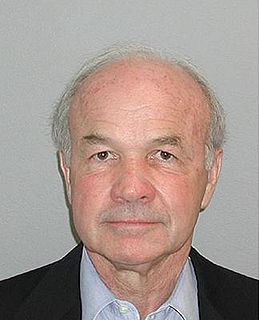A Quote by Paul Singer
The recent trading environment has felt something like walking into a place and having a sense that something is wrong and dangerous but not knowing exactly what will happen or when. “QE Infinity” has so distorted the prices of stocks and bonds that nobody can possibly determine what the investing landscape would look like, or what the condition of the economy and financial system would be, in the absence of Fed bond-buying.
Quote Topics
Absence
Bond
Bonds
Buying
Condition
Dangerous
Determine
Distorted
Economy
Environment
Exactly
Exactly What
Fed
Felt
Financial
Financial System
Happen
Having
Infinity
Investing
Knowing
Landscape
Like
Look
Nobody
Not Knowing
Place
Possibly
Prices
Recent
Sense
Something
Stocks
System
Trading
Walking
Will
Would
Would Be
Wrong
Related Quotes
I would really like to do a really cool one-hour show, maybe on, like, HBO or something like that; or something that I've spent a couple of years developing so it would be exactly the character and exactly in with a huge push behind it; or I would maybe want to do a sitcom; something light and funny.
It's quite clear that stocks are cheaper than bonds. I can't imagine anybody having bonds in their portfolio when they can own equities, a diversified group of equities. But people do because they, the lack of confidence. But that's what makes for the attractive prices. If they had their confidence back, they wouldn't be selling at these prices. And believe me, it will come back over time.
There is no doubt that the Fed's large-scale asset purchases have caused major increases in a number of asset prices in the economy. This is especially true of mortgage backed securities and corporate bonds, and quite possibly of equities as well. For those people and institutions holding those things, the run up in prices has been a wealth bonanza.
I find the expectation that a public figure - who is known for something besides, like, having a political thought, someone who puts on wigs for a living - would have something complex to say about any number of things, to be so aligned with a certain value system, is a little bit flawed. It's like, why would you think that?
I think it would be so fun to do some kind of comedy, something - I'm not exactly sure, but something like I just did Moliere's "Tartuffe" in class, and wow, what a stretch. Why go to classes? I get to play in Moliere's "Tartuffe," and I could never - nobody would ever think that they would be, I'd be right for that.
Evil denotes the lack of good. Not every absence of good is an evil, for absence may be taken either in a purely negative or in aprivative sense. Mere negation does not display the character of evil, otherwise nonexistents would be evil and moreover, a thing would be evil for not possessing the goodness of something else, which would mean that man is bad for not having the strength of a lion or the speed of a wild goat. But what is evil is privation; in this sense blindness means the privation of sight.
Initially, QE contributed to a pretty significant increase in inequality. It raised asset prices, which are owned primarily by the wealthy, while having relatively small if any positive impacts on bank lending, employment, wages or economic growth, so ordinary people haven't had much help. By the third round of QE in 2012-2014, the effects had likely muted quite a bit. There were probably not big impacts on asset prices from QE and the positive effects on employment growth might have strengthened somewhat.































